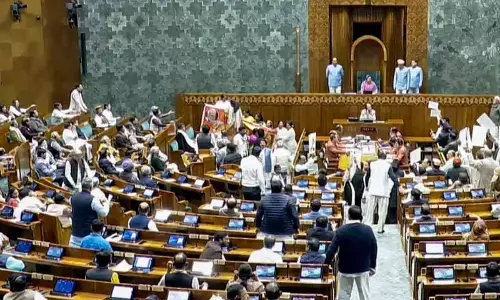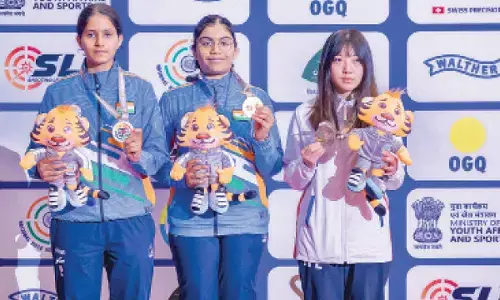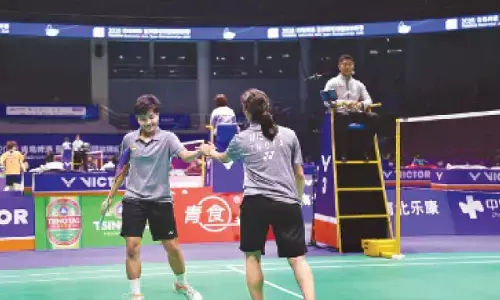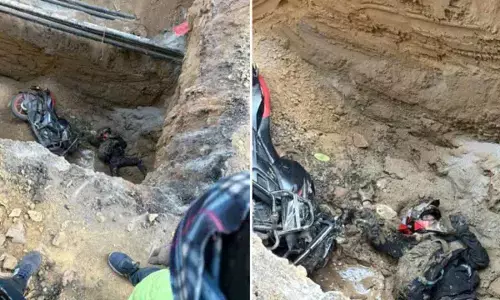A vision for centre of excellence studies in Classical Telugu
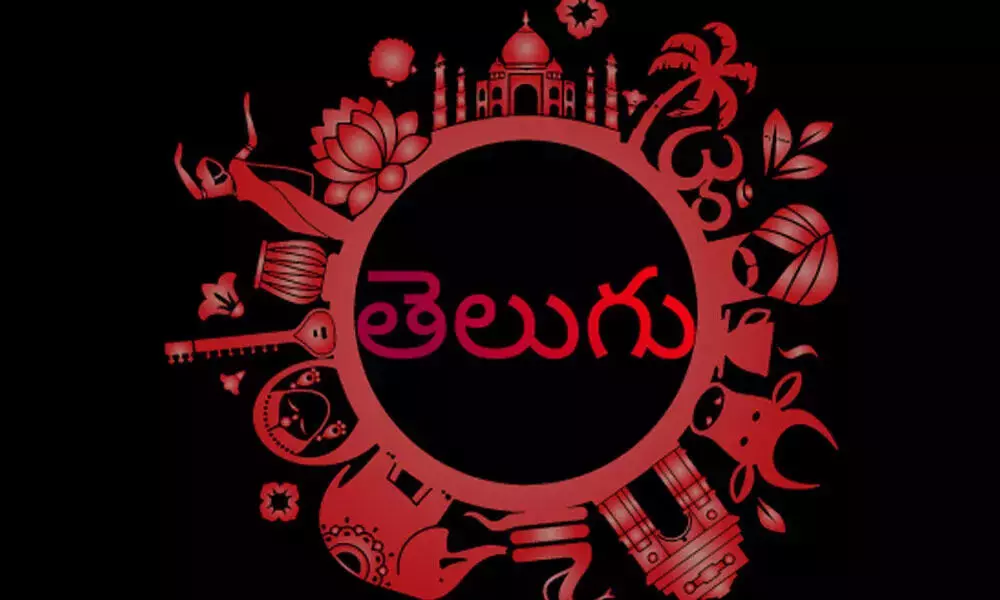
A vision for centre of excellence studies in Classical Telugu
Digitalisation of Telugu dictionaries is imperative for learning and understanding Telugu language with ease and comfort
(For the enrichment of the Telugu language, a few more pertinent points for the perusal of central and state authorities are as follows. The earlier viewpoints appeared on Tuesday. This is the concluding part)
4. Master book on ancient nature of Telugu Language
Several researchers published scholarly articles on the ancestry of Telugu language based on various Shasanas. All such publications need to be published in the form of a comprehensive single book with permission from the scholars concerned.
5. Master book on Telugu racial history and culture
Several Telugu researchers published scholarly articles on the above topics based on Shasanas.All such articles can be published at one source with additional and relevant commentaries on the same by distinguished scholars.
6. Classical Telugu Literary History book
Several available books on the above topics need to be published by a distinguished Centre in consultation with the writers concerned and the same should be made available at a much cheaper price for the benefit of students and Telugu literary admirers.
7. Compile Modern Telugu Literary History (1800-2000)
Establishment of a Council and an Editorial Board comprising senior writers, scholars and poets need to be constituted for taking note of the changes which have been happening since 1800 in the interpretations of the history of Telugu Literature for the purpose of constructing a comprehensive Telugu Literary History book.
8. Telugu Shasana Research Book
Several language scholars collected a number of Shasanas, de-codified them and published the same. Similarly, several essays surfaced on these in the recent past. A few Shasanas might have missed the attention of scholars so far. Such Shasanas should also be identified and the entire corpus of the same need to be published as a 'Telugu book of Shasanas' with relevant commentaries in a simple language.
9. Preparation of a comprehensive dictionary
In view of the need for a comprehensive Telugu dictionary taking in to consideration the usage of several non-Telugu words which have become an integral part of Telugu language, several Telugu dictionaries published by various organisations need to be compiled in to a single dictionary under the academic leadership of one like Prof Ravva Srihari. An advisory council and an editorial board need to be constituted for this purpose.
10. Preparation of modern vocabulary
Several new words including English words have been making their way into the usge of Telugu language for several reasons. This happens to be a continual process in the fast-changing dynamics of any language usage. Several Telugu scholars like late Dr C Narayan Reddy and several others felt the need for the composition of a distinct Telugu language glossary to resolve this problem. Hence, the Centre needs to establish a special wing for this purpose.
11. Symbolic (Sanketha) Telugu glossary
There is an imperative need to coin new words/vocabulary while compiling books related to Sciences, textbooks and for the purpose of translation from other languages into Telugu. Telugu Akademi has already carried out this mission. However, there is a need to take a fresh look at this exercise in the light of the fast-changing dynamics of language. Our centre needs to address this problem with the creation of an expert Council for this purpose. CSTT under the jurisdiction of the Central government is willing to bear all the expenses for this purpose.
12. Classical Telugu monthly national journal/paper
There is an imperative need for the establishment of the above Journal in order to familiarise all the Telugu people with the developments in the areas of Telugu language, literature, sciences, arts and other areas in different parts of the world. Our centre needs to take care of this. The journal will be very useful to all the students from the school stage to the university level, teachers, researchers and the language lovers.
13. Establishment of a Telugu TV channel
There is a need for the establishment of a TV Telugu channel for introducing the ancient character of Telugu language, its distinct values, cultural patterns, poets and their works to the Telugu people all over the world. The Telugu channel under the control of the government caters its activities to the Telugu people in different parts of the world. Moreover, the channel can publicise well the multiple contours and distinct nature of the folk performances of our ancestors. Such a channel will also bring name and fame to the CESCT.
14. National and international Telugu awards
It is possible to provide impetus and due respect to the Telugu language by awarding due rewards in terms of cash to the extent of Rs. One lakh annually to five distinguished Telugu writers, researches and scholars living in different parts of the world including both the Telugu states.
15. Organising seminars and workshops
The Centre can conduct about 25 Seminars/Conferences every year on ancient folklore based on the events in different Telugu departments in various universities and elsewhere in respect of the trends in folklore and folk performances. Moreover, such Conferences will be very beneficial to the students in respect of different forms of Telugu language and literature.
16. Orientation courses for Telugu teachers
Expert senior Professors need to organise periodic Orientation programmes for the benefit of teachers drawn from schools and colleges for the enhancement of their teaching abilities.
17. Digitalisation of Telugu dictionaries
Digitalisation of Telugu dictionaries is imperative for learning and understanding Telugu language with ease and comfort. It is very essential for students at different levels as well as those who want to learn Telugu language newly. Services of one like Prof. G. Uma Maheshwar Rao, known for his proficiency in the usage of Computers, for inculcating to the Telugu learners about the nuances of Telugu syntax and sentence structures can be requisitioned for this purpose.
18. Implementing Telugu as official language
Expertise of Telugu language scholars is a must for running the administration through Telugu in the offices of the two Telugu states. Moreover, such scholars are useful in providing the necessary links between the government and the people concerned. *
19. Publicity through translations
The distinct character of the Telugu language, literature, Telugu classics and rare Telugu books on various topics under the sun can be known to the people of non-Telugu nations through translations alone. For realizing this purpose, expert translators need to be identified and encouraged with incentives to carry out translations of important Telugu books in to Indian languages and then to English later. Such activities will bring due recognition to the Government of India as well as the Language Centre concerned.
The New Education Policy (NEP) approved by the Union Cabinet proposes the setting up of an Indian Institute of Translation and Interpretation (IITI) while also laying significant emphasis on Sanskrit and other Indian languages in Particular Telugu. As per the NEP 2020, India is a country with a treasure of cultural heritage in the forms of arts, custom, literature, tradition, artefacts, and much more. This makes India one of the most visited countries for tourists who come to the country to experience the rich culture and heritage. That is why it is important to preserve the culture and wealth of India for the nation's identity and its economy. In the realm of that, NEP 2020 consists of some major changes in context to Promotion of Indian Languages, Multilingual Education, Arts and Culture.
(Writer is a former Director of Telugu Akademi (Andhra Pradesh State Institute of Telugu Language) and former Vice-Chancellor (In-charge) of Telugu University, Hyderabad)








